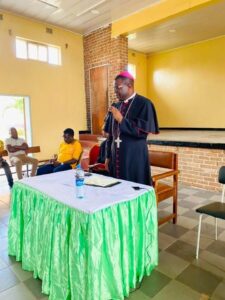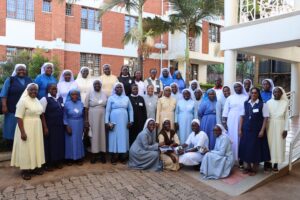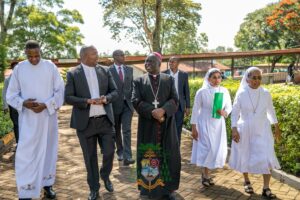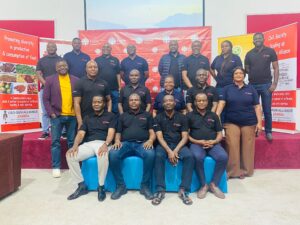MALAWI: CADECOM Calls for Sustainable, Comprehensive Response to Hunger Crisis in Malawi

Stella Zulu
The Catholic Development Commission (CADECOM) has called for a sustainable and comprehensive response to Malawi’s escalating hunger crisis, which has left millions in dire need of food and basic resources.
The call was made through a statement released on 18th September 2024 CADECOM’s National Office in Lilongwe. According to the statement, a report by the Malawi Vulnerability Assessment Committee (MVAC) released in July 2024 indicates that 4.2 million Malawians currently face acute food insecurity, with projections indicating that the figure could rise to 5.7 million during the lean period of October 2024 and March 2025.
The hunger crisis in Malawi has been exacerbated by natural disasters, including tropical cyclones Freddy, ANA, Gombe and Idai which destroyed vast tracts of farmland and livestock. Recurrent flooding and droughts also worsened the situation by severely affecting agricultural productivity and inflating food prices, pushing vulnerable communities into extreme poverty.
CADECOM laments that the government’s policies in response to the disasters have been disjointed, particularly in handling the El Niño weather phenomenon.
“For example, the Department of Climate Change and Meteorological Services forecasted El-Nino weather phenomenon way before the rainy season particularly in the Southern region of Malawi. Yet, the same Government proceeded to distribute maize seed and fertilizers for maize production instead of distributing seeds for drought tolerant crops like sorghum, millet, cowpeas and sweet potatoes. These kinds of mismatch decisions also exacerbate the status quo and have in this case contributed to the current food crisis in the country.” Reads part of the statement
While emergency responses, such as food distribution, cash vouchers, nutritional support programs, especially for children under five, and efforts to stabilize food prices are underway in some parts of the country, CADECOM emphasizes that these short-term measures are insufficient hence the call for deeper, long-term solutions which will address the root causes of food insecurity in Malawi.
The Commission, therefore, urges government, development partners, and the international community to invest in resilient agricultural practices, water management systems, support for smallholder farmers and enhanced social safety nets and economic opportunities to build a more food-secure Malawi.
CADECOM has further encouraged the Catholic community and public to adopt sustainable agricultural practices, support local resource mobilization efforts, and share resources with those in need, underscoring the importance of solidarity and shared responsibility in overcoming the crisis.




